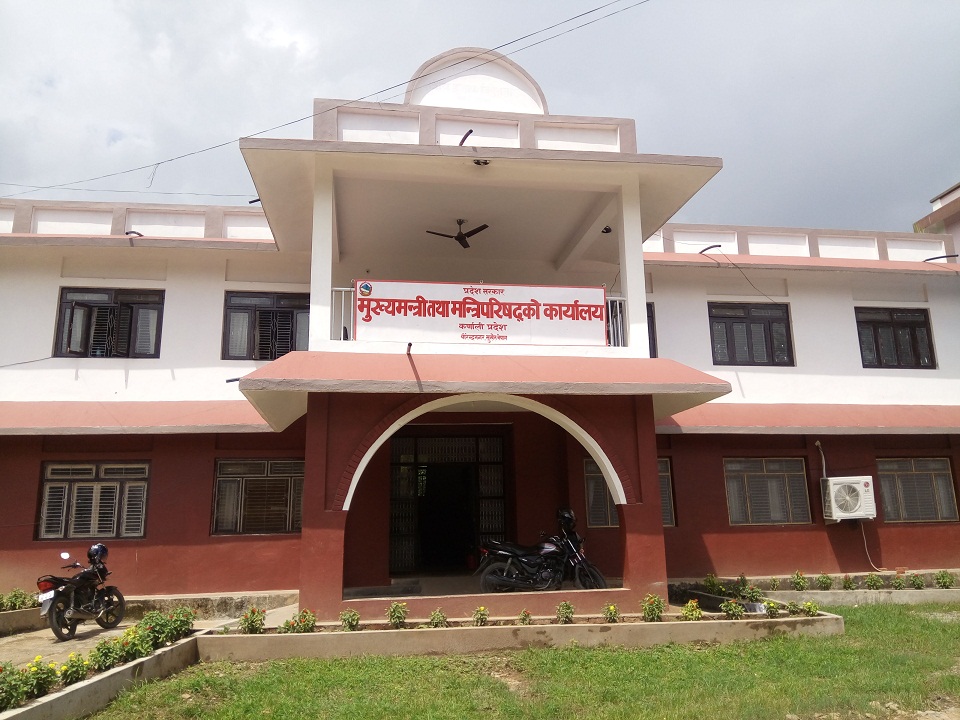
OR
Ncell suspected of manipulating new telecom Bill to extend operating license beyond 2029
Published On: March 30, 2023 08:00 AM NPT By: Tapendra Karki

The 25-year license period that Ncell obtained on September 1, 2004, is expiring in September 2029. As per the existing Telecommunication Act, 1997, after the expiry of the license period, Ncell will come under the ownership of Nepal government if it chooses not to limit its foreign ownership to less than 50 percent.
KATHMANDU, March 30: The government has expedited the process to introduce new telecommunication laws with controversial provisions that seek to benefit a private sector telecom company in the country.
As per the existing laws, any telecommunication company operating in Nepal with more than 50 percent stakes of foreign investors shall come under the government’s ownership after the expiry of their 25-year operating license. It means that such companies cannot renew their license unless they float the shares to the general public and maintain foreign holdings at less than 50 percent.
However, stakeholders claim that conspiracies are being hatched to change this provision, which is evident from the fact that a cabinet meeting chaired by Prime Minister Pushpa Kamal Dahal recently gave approval to the Ministry of Information and Communication Technology (MoICT) to submit a Bill to Amend and Integrate the Laws Related to Telecommunications to this end.
If the bill is approved by the parliament as it is, Ncell, a private sector telecom company in the country which has 80 percent foreign holdings, will be able to extend its operating license while retaining its existing ownership structure against the prevailing laws.
The Clause 24 of the controversial Bill has a provision related to integrated permit. Experts in the communication sector claim that the provision mentioned in sub-section 3 of this section is being introduced to solely benefit the telecommunication service provider Ncell.
"A person who has obtained a license for basic telephone service issued before the commencement of this Act shall be deemed to have obtained an integrated license in accordance with this Act," states sub-section 3 of section 24 of the Bill, which will soon be presented in parliament for endorsement.
This controversial provision seeks to bring fundamental change in the existing Telecommunication Act, 1997. Clause 25 of the Telecommunication Act, 1997 clearly states that the period of license shall be of twenty-five years at the maximum.
Similarly, Clause 33 of the Act states that the land, building, plant, equipment and other structures related to the Telecommunications service developed with more than fifty percent of its investment by a foreign person or corporate body shall be under the ownership of the government after the expiry of the period of such license.
The 25-year license period that Ncell obtained on September 1, 2004, is expiring in September 2029. As per the existing Telecommunication Act, 1997, after the expiry of the license period, Ncell will come under the ownership of the Government of Nepal. As such, Ncell is coming under the ownership of the government within the year 2029 if it chooses not to float shares to the ordinary public to limit foreign ownership to less than 50 percent.
Sources familiar with the move to introduce new provision in the existing Telecommunication Act 1997 say that it is solely aimed at paving the way for Ncell to extend the license period while retaining its existing ownership structure.
"If the bill is passed as it is, there will be a relief to Ncell, which will otherwise come under the government ownership if more than 50 percent shares are not sold to Nepalis in the next six and a half years," said a source familiar with the development.
Currently, Malaysian company Axiata has 80 percent investment in the company and the remaining 20 percent is owned by Nepalis. According to the existing arrangement, the remaining 30 percent share ownership of Ncell has to be sold to Nepalis.
But the company has been demanding that this arrangement be changed in the name of creating a favorable environment for Foreign Direct Investment (FDI) in Nepal. The provision proposed in the Sub-clause 3 of Clause 27 of the Bill to Amend and Unify the Laws Related to Telecommunications, 2079 aims to remove this provision.
A senior official at the Ministry of Communication and Information Technology claimed that there has been a huge financial manipulation while preparing the concept paper for drafting the telecommunications bill. The official, however, did not reveal whether this financial manipulation happened after the formation of the current government or during the previous government.
Sources said the bill prepared by the Telecommunication Authority also includes a provision for recording individual calls. This provision is being protested as it violates the privacy of individuals. The rights of the call records are to be given to the private sector telecommunication service provider company Ncell. If this happens, the rights vested with Nepal Telecom will go to Ncell.
In the next section of the bill, it is mentioned that the person who previously received a license for cellular mobile service, basic mobile service, basic telecommunication service and rural telecommunication service can apply for an integrated license. Sources say that if this arrangement proposed in the bill is passed, Ncell, which has obtained a license for cellular mobile services, will receive an integrated license within one year.
You May Like This
_20230331074225.jpg)
Govt set to lose Ncell ownership as new Bill to replace Telecommunication Act is manipulated by vested groups
KATHMANDU, March 31: A private sector telecommunication service provider, Ncell, which should supposedly come under the government’s ownership after 2029... Read More...

Nepal First, Not Ncell
The move by the government to expedite the process of introducing new telecommunication laws with controversial provisions that seek to... Read More...



Just In
- 70 community and national forests affected by fire in Parbat till Wednesday
- NEPSE loses 3.24 points, while daily turnover inclines to Rs 2.36 billion
- Pak Embassy awards scholarships to 180 Nepali students
- President Paudel approves mobilization of army personnel for by-elections security
- Bhajang and Ilam by-elections: 69 polling stations classified as ‘highly sensitive’
- Karnali CM Kandel secures vote of confidence
- National Youth Scientists Conference to be organized in Surkhet
- Rautahat traders call for extended night market hours amid summer heat
















Leave A Comment